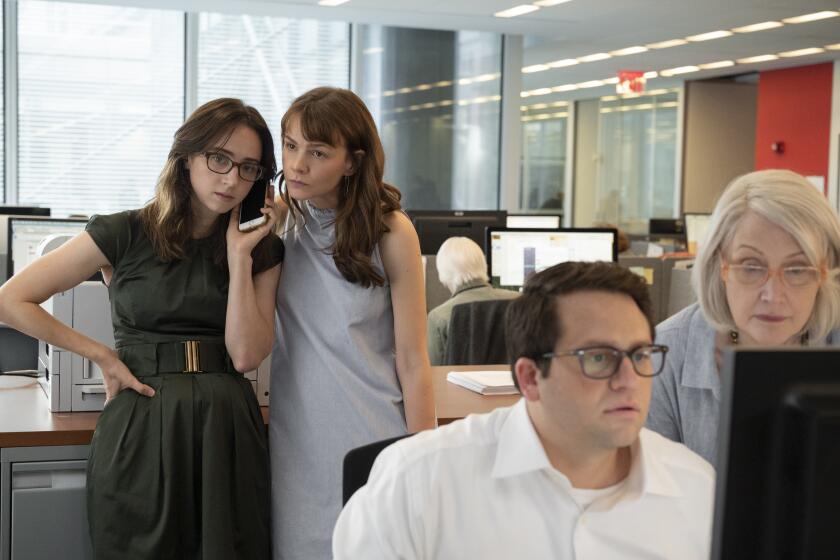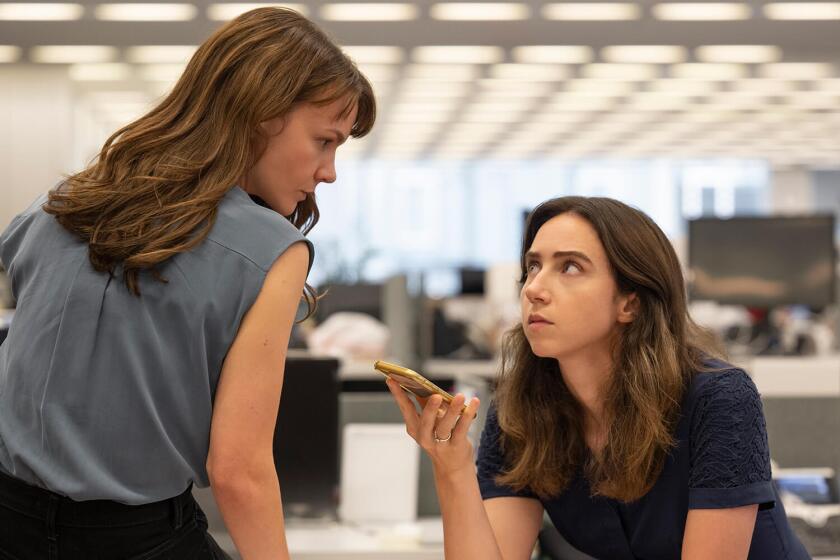- Share via
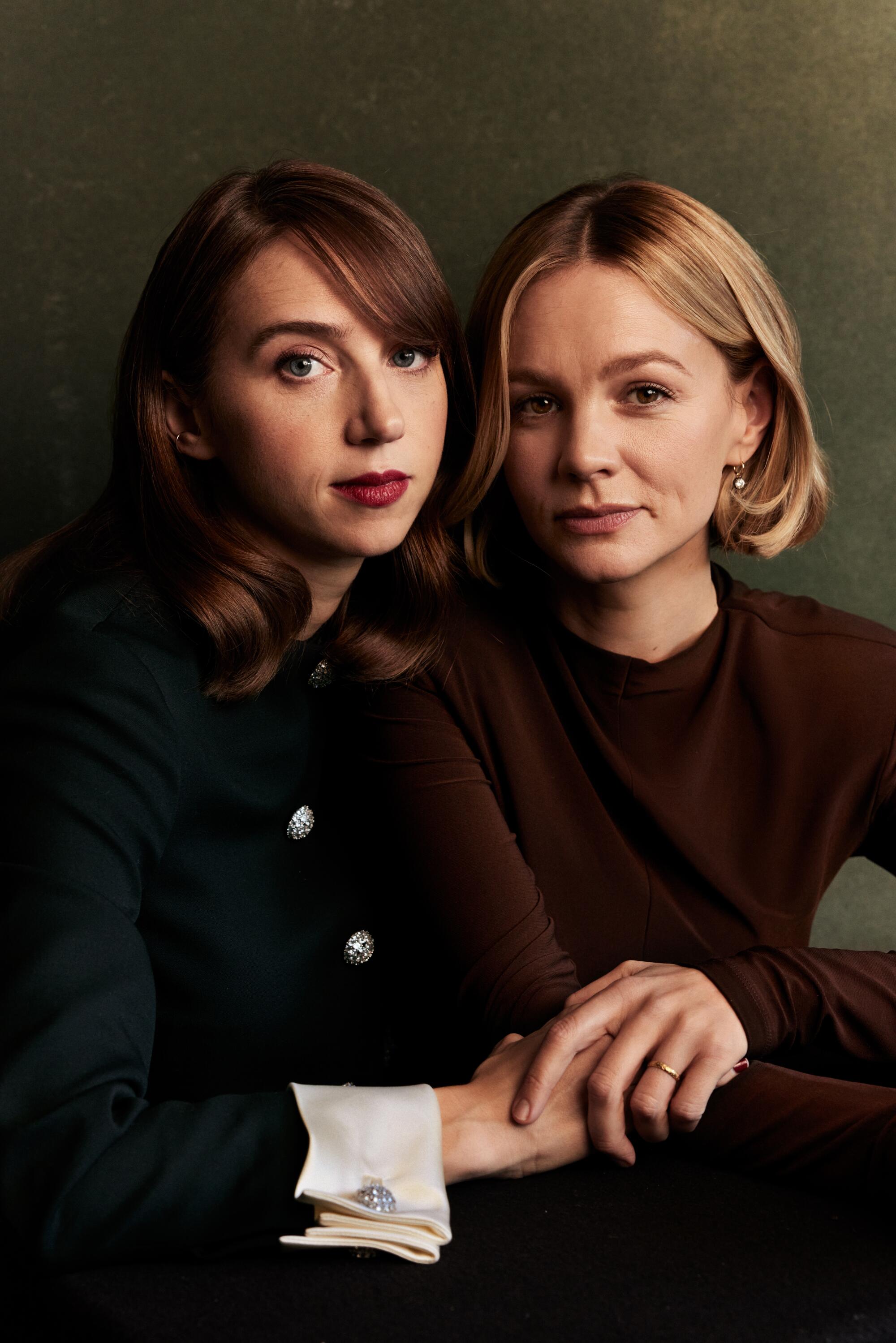
An early acting challenge for Zoe Kazan and Carey Mulligan in “She Said” was to show experienced newspaper colleagues carefully sizing each other up. Says Mulligan, who plays the well-armored Megan Twohey, to Kazan’s more approachable Jodi Kantor, the New York Times reporters whose investigation brought down film producer Harvey Weinstein, “They had a working rapport pretty quickly, but Jodi remembered that when they first met, she thought, ‘She’s not for me.’”
Kazan and Mulligan, however, have been finishing each other’s sentences since 2008, after both appeared in the Broadway production of “The Seagull” and remained so close that it concerned “She Said” director Maria Schrader. “She wanted to know if [our friendship] would be an impediment,” says Kazan. “I told her, ‘No.’”
Recently, while sitting on a patio at the Four Seasons in Los Angeles, the pair spoke about how access to Kantor and Twohey informed their wonderful, finely observed performances, from the quiet gravitas radiated in scenes where they mollify quaking sources, to understanding the effort it takes to bring bombshell reporting to light. “I had this naive idea they just have to find out the truth, then publish it,” says Kazan. “I was surprised by the amount of backup and evidence they had to have for everything.”
Preproduction research involved lots of hanging out. What was helpful about visiting a reporter’s home?
Kazan: The first thing I noticed was that Jodi and [her husband, New York Times columnist Ron Lieber] both have desks in the kitchen. It’s not their primary place of work. But work is in the center of the home. There are stacks of paper in the corner. Jodi’s prizes are next to pictures of their daughters and family. Everything is enmeshed. That’s so recognizable to me. I have a tiny desk in our bedroom. In the New York apartment, you’re making it all work in a Tetris-y kind of way. Also, that’s what I grew up with: My mom’s desk was around the corner from our kitchen, and my dad’s desk was around the corner from that.
Mulligan: I never went to Megan’s house. I went to her office. She came over to my house a lot.
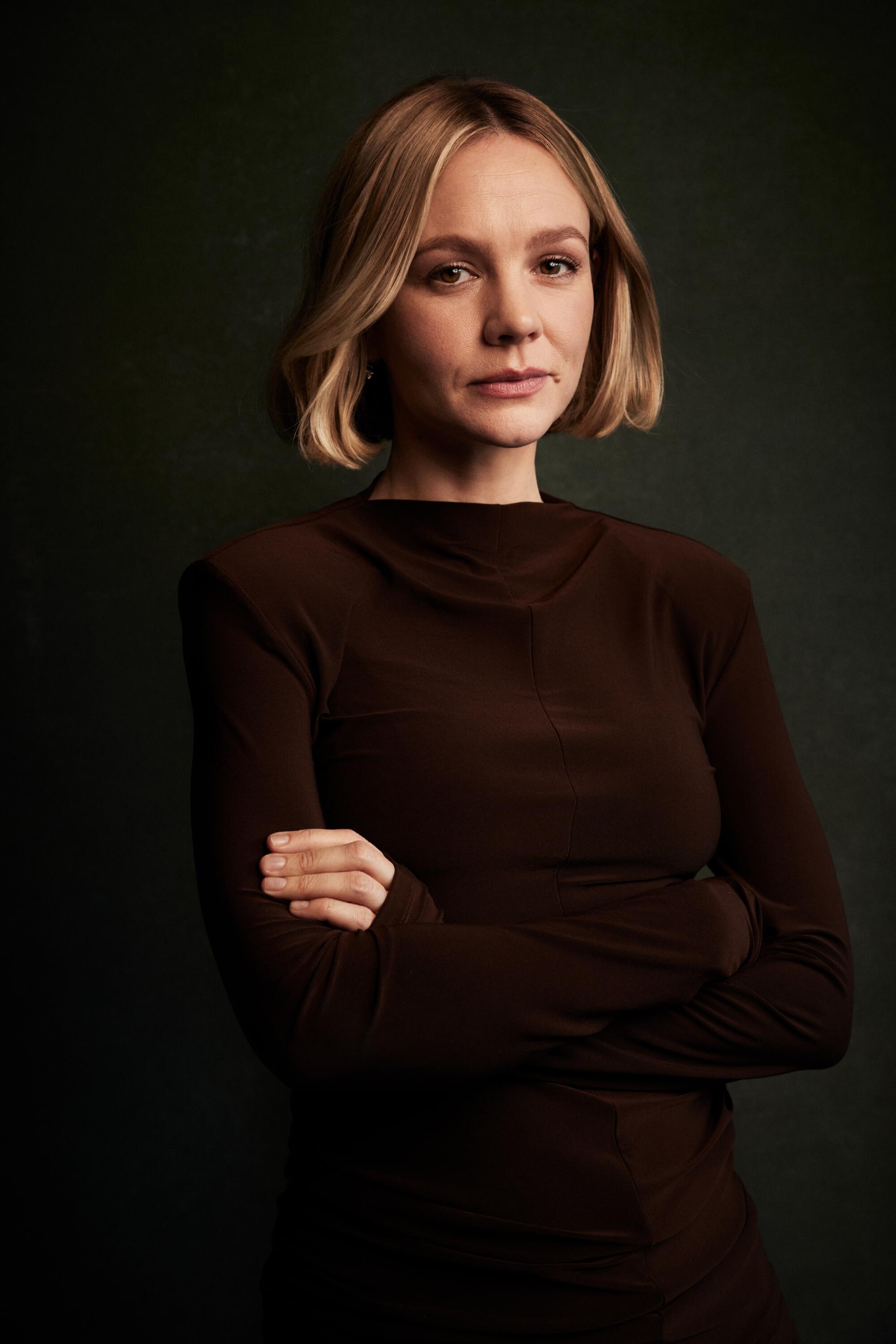
What did you want to capture about Megan herself?
Mulligan: So much. Something interesting about both of them [is] their pattern of speech. They complete the thought before they speak. The whole thought has been thought through, then they say the words. There’s no ums or ahs, no hesitation. It’s exactly what they mean. Initially, there’s something really intimidating about somebody who is that together.
Adapting the New York Times’ 2017 investigation of Weinstein meant turning to Ashley Judd, Gwyneth Paltrow and others who spoke out against him.
Jodi, Megan and you two all have children. Talk about juggling work and motherhood.
Mulligan: When I have the chance to fly my family anywhere, I always think, “How do I make it as fun or manageable for [them]?”
Kazan: Carey, pretty casually, said, “I don’t know what to do with my kids during New York summer.” And we got back a full dossier: where to send kids to camp, where to take them on a Sunday. Best hospitals to go to. It was almost like a parody of what you’d get from two journalists.
Wait. Your parents’ insider’s guide was compiled by Pulitzer Prize winners?
Mulligan: …This huge document of kiddie activities in Brooklyn. I took my son to hospital within the first couple of days. He was fine. He’d just split his lip. But I hadn’t consulted the document. I remember the first thing they both said was, [urgently] “Which hospital did you go to?”
Share a sense of why you think the Jodi/Megan partnership worked.
Mulligan: With what they were covering, the threats against them, being followed, phone calls being listened to, all that stuff, doing that in isolation — even when you have a team of editors — would feel pretty horrendous.
Kazan: I remember Jodi telling me as much, that what Megan brought to the investigation was lots of concrete experience and expertise but also that it felt so good to not be alone. They were carrying around so much knowledge that they couldn’t tell anyone else.
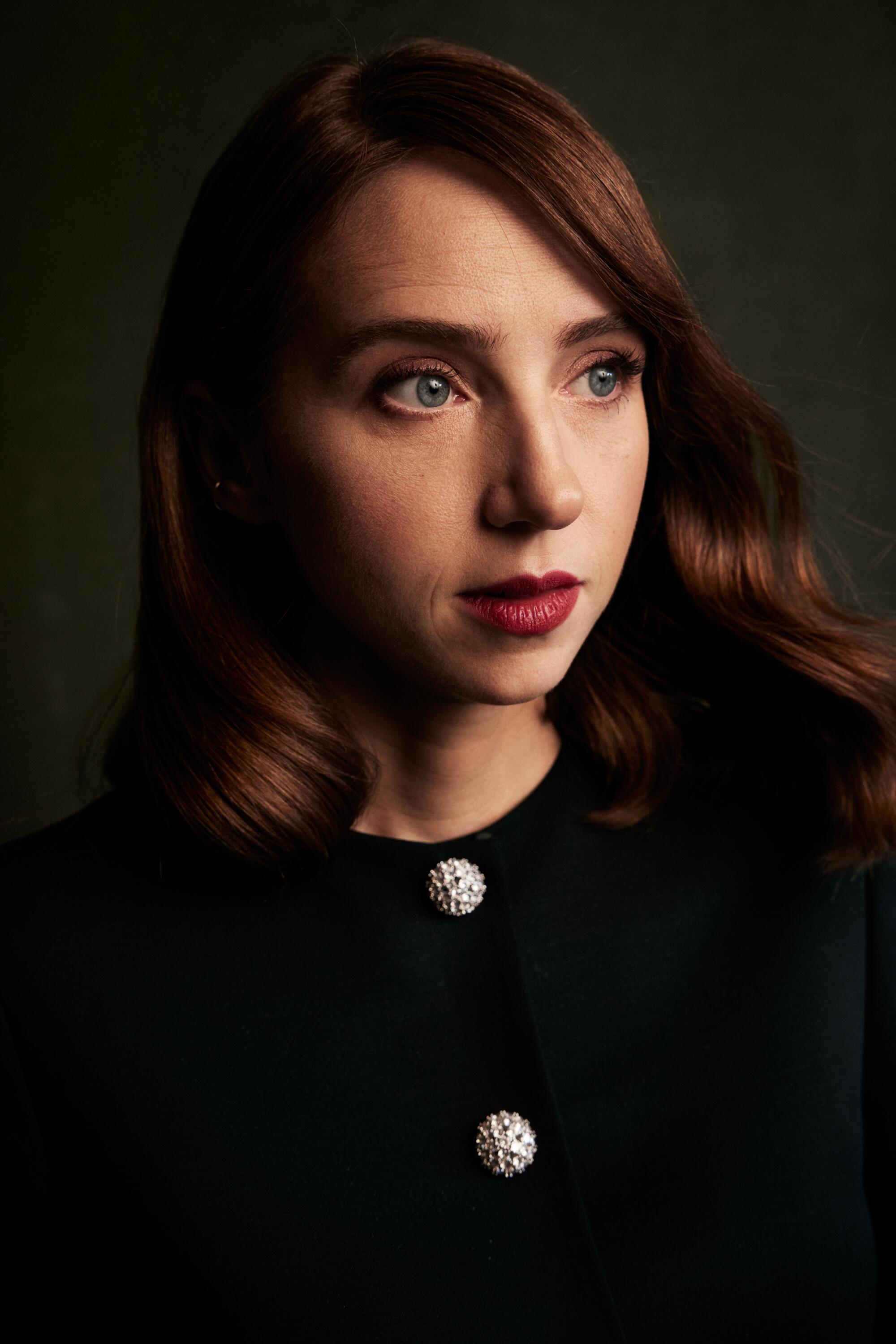
Harvey Weinstein is on trial for rape in L.A. and a new movie “She Said” showcases the investigative journalism that exposed him.
What sort of reporters do you think you’d make?
Kazan: I don’t think a very good one.
Mulligan: One of the reasons I wanted to [take the role] was that I couldn’t understand investigative journalism, of calling someone in the middle of the day and asking potentially triggering questions. You know, “Please tell me about this horrendous thing that happened to you that you may not have even told your family. I’d like to put it in the newspaper!” The intrigue for me was, “How is that your job?” I know if it was me, I’d be awake all night thinking, “Goodness.” What I learned from spending time with them is they have complete conviction that what they’re doing is for the right reasons. But I think I’d be terrible at it. I wouldn’t know how to dial the number I’d be so scared.
Kazan: I can imagine being doggedly in pursuit of something, doing tons of research, digging through documents. But the cold calling? I’d have a hard time with that.
What’s the overlap when it comes to acting and investigative reporting?
Kazan: When I asked Jodi, “How do you approach a source?” she was like, “My job is to make them feel able to talk.” That made me think, “Oh, this is like acting on stage, where so much of it is about opening your body and listening to the other person.” Our aim is different, but it’s a similar set of skills that has to do with a porousness, of listening.
Mulligan: They talked about how no two sources or encounters would be the same, that you’d employ different tactics. But Megan also talks about sort of relishing taking on these powerful figures, that she gets fired up about it.
Sounds like they found the right calling in life.
Mulligan: Zoe asked them if they had done a different job what it’d be. Jodi said, “I’d be a therapist,” and Megan said, “I’d be a police interrogator.”
More to Read
Sign up for The Envelope
Get exclusive awards season news, in-depth interviews and columnist Glenn Whipp’s must-read analysis straight to your inbox.
You may occasionally receive promotional content from the Los Angeles Times.
